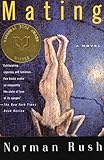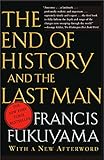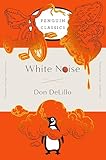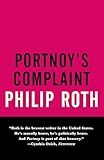




Winter I: On the tail end of a months-long Edith Wharton bender, I embarked on Hermione Lee’s biography, where she calmly, authoritatively, and hypnotically lays out how Wharton metabolized every single life experience into art. I finished it in exhilarated tears. I reread Mating, a seminal personal text, and realized the male love interest was way more annoying than I perceived on my momentous first read. Growth and change? For a long time I used to ask people about the best entry point into Marx, and got suggestions like The German Ideology. (That’s not it!!!!!) May I humbly propose, instead, To the Finland Station: A Study in the Writing and Acting of History, which turns the birth of socialism and the intellectual labors of Marx and Engels into a page-turning thriller? Everyone should read it! I was knocked off my feet by The French Lieutenant’s Woman by John Fowles (criminally under-read since his death in 2005), a brilliant postmodern novel set in Victorian England, with a generous bibliography that led me to revise almost every page of my own (nonfiction) book proposal about a family in Victorian England. I love most out-of-print books that must be ordered from Ebay, but I especially enjoyed a 1926 book called Nabobs of Madras, about some of the earliest East India Company employees in 18th century Tamil Nadu. Hundreds of pages of mostly-true catnip for me about duels, gambling, hunts, home-grown satire, profoundly unsuitable cuisine, cross-cultural liaisons, and gallons of claret, which arrived once a year in a ship from Madeira.




 Spring: I was reviewing the latest Francis Fukuyama book, so I read most of his other ones, and, to my surprise, The End of History, which doubled as vacation reading in Florida, was fantastic. The American century must have been a real trip. I read my first Don Delillo, White Noise, a great book about a guy trying to learn German, just like me! In that vein, someone gifted me Lydia Davis’s priceless Essays One and Two, where she discusses learning to read Spanish by muddling through Don Quixote with a dictionary, which I found both inspiring and insane. So I decided, on a whim, to try and translate Kindergeschichten (Stories for Children), fable-like short stories by Swiss-German writer Peter Bichsel (name checked by Davis). It kind of worked; I felt like a stronger reader on the other side.
Spring: I was reviewing the latest Francis Fukuyama book, so I read most of his other ones, and, to my surprise, The End of History, which doubled as vacation reading in Florida, was fantastic. The American century must have been a real trip. I read my first Don Delillo, White Noise, a great book about a guy trying to learn German, just like me! In that vein, someone gifted me Lydia Davis’s priceless Essays One and Two, where she discusses learning to read Spanish by muddling through Don Quixote with a dictionary, which I found both inspiring and insane. So I decided, on a whim, to try and translate Kindergeschichten (Stories for Children), fable-like short stories by Swiss-German writer Peter Bichsel (name checked by Davis). It kind of worked; I felt like a stronger reader on the other side.




 Summer: A historian on The Drift’s inaugural softball team recommended The Cheese and the Worms, a whirlwind micro-history about a 16th century Italian peasant who was burned at the stake for heresy. No prior topical knowledge required, and it’s as close as history gets to drinking a glass of Prosecco very fast. I flew to England for a month in the archives and, on my first day, jet-lagged and overwhelmed in Ladbroke Grove, read A Month in the Country and burst into tears. It’s a very small masterpiece about a World War I veteran who restores a Medieval painting in a church near Yorkshire. If you like Merchant Ivory films, you’ll love this. I also loved Working, Robert Caro’s memoir about his heroic feats of doorstepping and source-exhuming. I parceled it out to to last several weeks, so that Caro’s voice could be a backstop when my attention slid during another overheated day in an airless archive. I bring a fresh copy of a William Dalrymple book on my research trips, because he was so formative to my sensibility—but now that I work in the same genre, it’s kind of like staring into the sun. This time I brought The Last Mughal, about the Sepoy mutiny and the fall of Delhi. The chapter narrating the Siege of Delhi, hour by hour, is a standalone masterpiece. It took me a long time to reread, since I was not just marking up all the text, but also all the footnotes. Everyone told me I would love Tessa Hadley, but I finally picked up Late in the Day and it did nothing for me!
Summer: A historian on The Drift’s inaugural softball team recommended The Cheese and the Worms, a whirlwind micro-history about a 16th century Italian peasant who was burned at the stake for heresy. No prior topical knowledge required, and it’s as close as history gets to drinking a glass of Prosecco very fast. I flew to England for a month in the archives and, on my first day, jet-lagged and overwhelmed in Ladbroke Grove, read A Month in the Country and burst into tears. It’s a very small masterpiece about a World War I veteran who restores a Medieval painting in a church near Yorkshire. If you like Merchant Ivory films, you’ll love this. I also loved Working, Robert Caro’s memoir about his heroic feats of doorstepping and source-exhuming. I parceled it out to to last several weeks, so that Caro’s voice could be a backstop when my attention slid during another overheated day in an airless archive. I bring a fresh copy of a William Dalrymple book on my research trips, because he was so formative to my sensibility—but now that I work in the same genre, it’s kind of like staring into the sun. This time I brought The Last Mughal, about the Sepoy mutiny and the fall of Delhi. The chapter narrating the Siege of Delhi, hour by hour, is a standalone masterpiece. It took me a long time to reread, since I was not just marking up all the text, but also all the footnotes. Everyone told me I would love Tessa Hadley, but I finally picked up Late in the Day and it did nothing for me!




 Fall: I read Family Lexicon by Natalia Ginzburg on a plane to Lagos, because I thought it would be fun to cheat on my reporting trip by packing something unrelated. But the joke was on me because her ingenious characterization was actually very instructive. (Like in an Eric Rohmer film, wicked intentions led me, circuitously, to do my duty anyway.) Then I read or reread one widely acclaimed book after another: Middlemarch, Beloved, Portnoy’s Complaint (the yellow paperback), The Satanic Verses. There’s nothing I can add about why these were all great, but this was such a good stretch that I’ve resolved to read more shallow cuts (as opposed to deep cuts) in 2023.
Fall: I read Family Lexicon by Natalia Ginzburg on a plane to Lagos, because I thought it would be fun to cheat on my reporting trip by packing something unrelated. But the joke was on me because her ingenious characterization was actually very instructive. (Like in an Eric Rohmer film, wicked intentions led me, circuitously, to do my duty anyway.) Then I read or reread one widely acclaimed book after another: Middlemarch, Beloved, Portnoy’s Complaint (the yellow paperback), The Satanic Verses. There’s nothing I can add about why these were all great, but this was such a good stretch that I’ve resolved to read more shallow cuts (as opposed to deep cuts) in 2023.



 Winter II: Last year, my friend Ricky, who has perfect taste in novels, recommended The White Hotel, but said he wouldn’t try and explain why. I finally tore through it during Thanksgiving break. It’s an astonishing story about Freud, dreams, attachments, and the Holocaust… and now I don’t want to say any more. At one point in the penultimate section, every hair on my body stood on end, and I was covered in gooseflesh until the last page. Then I stared out the window for an hour. Coming back down to Earth, I impulsively ordered Latin Phrases and Quotations, because I’d been excited to slip one into a magazine piece, and who knew how many other perfect phrases were out there. (Not sure if this will pan out to anything, but bene est tentare.) I revisited a dazzling book I’ve returned to for over ten years: The Vehement Passions by Philip Fisher, a sui generis (sorry) study of the Ancient Greek “passions” like grief, anger, sorrow through virtually all of Western art and literature, from Homer to St. Augustine to Walt Whitman. Fisher is as matter-of-fact and authoritative on human nature itself as an ornithologist writing a field guide. My last book of the year may be Sérotonine, by Michel Houllebecq, which I’m saving for Christmas.
Winter II: Last year, my friend Ricky, who has perfect taste in novels, recommended The White Hotel, but said he wouldn’t try and explain why. I finally tore through it during Thanksgiving break. It’s an astonishing story about Freud, dreams, attachments, and the Holocaust… and now I don’t want to say any more. At one point in the penultimate section, every hair on my body stood on end, and I was covered in gooseflesh until the last page. Then I stared out the window for an hour. Coming back down to Earth, I impulsively ordered Latin Phrases and Quotations, because I’d been excited to slip one into a magazine piece, and who knew how many other perfect phrases were out there. (Not sure if this will pan out to anything, but bene est tentare.) I revisited a dazzling book I’ve returned to for over ten years: The Vehement Passions by Philip Fisher, a sui generis (sorry) study of the Ancient Greek “passions” like grief, anger, sorrow through virtually all of Western art and literature, from Homer to St. Augustine to Walt Whitman. Fisher is as matter-of-fact and authoritative on human nature itself as an ornithologist writing a field guide. My last book of the year may be Sérotonine, by Michel Houllebecq, which I’m saving for Christmas.










